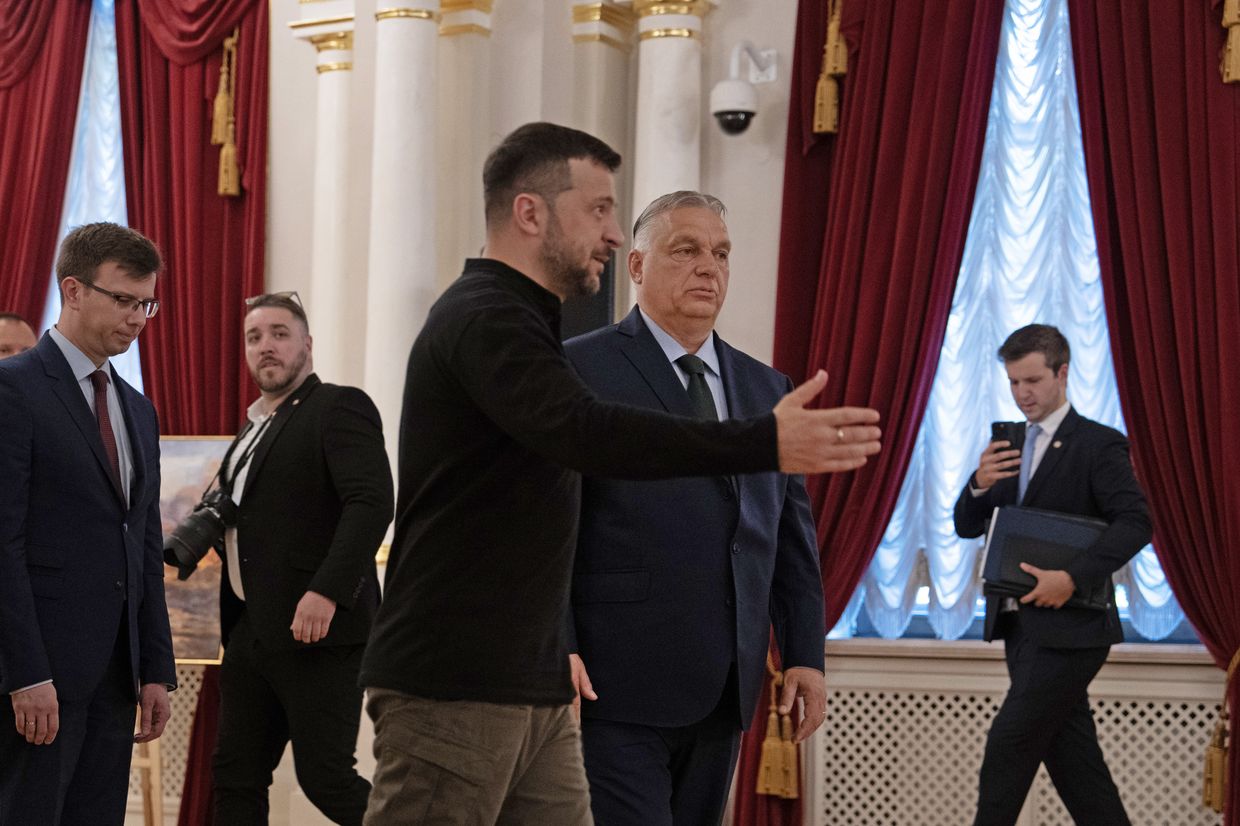Orban arrives in China to discuss Ukraine-Russia war.
Support independent journalism in Ukraine. Join us in this fight.
Become a member Support us just onceHungarian Prime Minister Viktor Orban arrived in China on July 8, days after his visits to Kyiv and Moscow. Orban, whose country took over the rotating presidency of the Council of the EU earlier in the month, called the visit to Beijing a third step in his "peace mission." "China is a key power in creating the conditions for peace in the Russia-Ukraine War.
This is why I came to meet with President Xi (Jinping) in Beijing, just two months after his official visit to Budapest," Orban said on X. China has positioned itself as neutral in the ongoing war but has deepened economic ties with Russia and become Moscow's leading source of dual-use goods. Beijing has also pitched a peace plan together with Brazil as an alternative to Ukraine's peace efforts, hoping to secure international backing for its proposal.
Orban was greeted by Chinese Foreign Vice Minister Hua Chunying upon his arrival and is later expected to meet Xi. The Hungarian prime minister's visit to Moscow and talks with Russian President Vladimir Putin on July 5 sparked anger across the EU. European officials stressed that the presidency has no mandate to conduct any "peace missions" on the EU's behalf and that Orban's undertaking is a bilateral effort on Hungary's part.
Budapest has maintained close relations with Moscow throughout the full-scale war, obstructed sanctions against Russia, and criticized military aid to Kyiv, alleging that it merely "prolongs" and "escalates" the war.
Upon talking with Putin and Ukrainian President Volodymyr Zelensky, Orban said that the stances of the two countries on peace prospects are "very far apart."
Orban's Kyiv, Moscow trips test boundaries of EU presidency, expert says
Viktor Orban's steps show that he is "playing a different game and using the vacuum while the compositions of these (EU) institutions are changing" after the European elections, said Pavel Havlicek, a research fellow at the Association for International Affairs.
